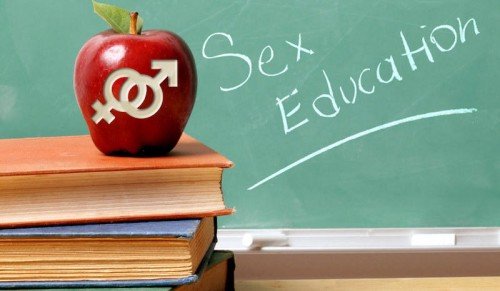Sex education in Italy has been a topic of debate and controversy for decades. While the country has a rich history and culture, its approach to sex education has often been seen as inadequate, outdated, and conservative. However, in recent years, there have been significant changes in how sex education is taught and perceived in Italy.
One of the most significant changes in recent years has been the introduction of new guidelines for sex education in schools. In 2018, the Italian Ministry of Education released new guidelines that require all schools to provide comprehensive sex education to students from primary school onwards. This includes topics such as reproductive health, contraception, and sexual diversity. These guidelines also emphasize the importance of teaching students about gender equality, consent, and healthy relationships.
While these new guidelines have been welcomed by many, they have also faced opposition from conservative groups and politicians who argue that sex education should be left to parents rather than schools. However, supporters of comprehensive sex education argue that it is crucial for young people to have access to accurate information about sex and sexuality, especially in a country where rates of sexually transmitted infections and teenage pregnancies are higher than the European average.
In addition to changes in schools, there have also been significant changes in how sex education is perceived and discussed in Italian society. In recent years, there has been a growing movement of young people and activists who are pushing for more progressive attitudes towards sex and sexuality. This includes campaigns for LGBTQ+ rights, women's rights, and reproductive rights.
There has also been a greater awareness of the importance of addressing issues such as sexual harassment and violence. In 2018, the #MeToo movement gained significant traction in Italy, leading to a national conversation about sexual harassment and violence. This has led to increased efforts to educate young people about consent and healthy relationships, as well as greater support for victims of sexual violence.
The opposition to comprehensive sex education in Italy often comes from conservative groups and politicians who argue that it should be the responsibility of parents, rather than schools, to educate their children about sex and sexuality. These groups often view sex education as a threat to traditional family values and argue that it should promote abstinence rather than contraception and safe sex practices.
However, supporters of comprehensive sex education argue that it is important for young people to receive accurate information about sex and sexuality in a safe and supportive environment. They argue that not all parents are equipped to provide this kind of education, particularly if they have limited knowledge about sex and sexuality themselves. They also argue that providing comprehensive sex education in schools can help to reduce rates of sexually transmitted infections, unwanted pregnancies, and sexual violence.
Despite this opposition, there has been a growing recognition in Italy that comprehensive sex education is necessary to ensure that young people have the information and skills they need to make informed decisions about their sexual health and wellbeing. The introduction of new guidelines for sex education in schools is one example of this shift in attitude, and it suggests that Italy is slowly moving towards a more progressive and inclusive approach to sex education.
Overall, while Italy's approach to sex education still has a long way to go, there have been significant changes in recent years that suggest a more progressive and inclusive approach to sex education is emerging. As attitudes towards sex and sexuality continue to evolve, it is crucial that young people have access to accurate information and support to make informed decisions about their sexual health and wellbeing.
